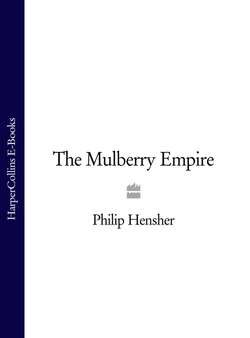Читать книгу The Mulberry Empire - Philip Hensher - Страница 33
9.
ОглавлениеThe river continued its placid brown life, unmoved by Burnes’s enthusiasm. As Burnes had talked, they had started to walk again, and they now found themselves in the shadow of the great bridge. A boatman clung on to the rope hanging on the nearest pier, the boat under his lurching feet being pushed away by the current. It swung from one side of the great pier to the other. With his left hand, he nonchalantly ate a bit of bread and an onion. The river was low, its stench so strong and heavy that it could be tasted in the mouth. A flock of coal-lighters was secured for the next few hours in the treacle-rich ooze of the river’s mud, a stuff almost valuable in itself. On the far bank, boys, almost naked, were plunging into this thick mass of mud, occasionally surfacing with cries to show that some small treasure, some penny had been found. Here surfaced a boy, black and dripping, his hand upstretched with a treasure, and trying to hail a little green tug with his shrieking gull-cry. The traffic of the river continued its furious pace uninterrupted, in the middle stream, like water-insects, handling each other out of the path with busy prodding prongs, hooks, ropes, businesslike and abrupt, not pausing for pleasantry, or apology; the purposeful dancing of a rude public ball. Long and intricate levels of wooden stairs and causeways, eroded and slippery smooth, clung to the river’s edge, and each boat, loading, unloading, mooring for a few short hours, seemed like an efficient drab bird which had alighted on one branch rather than another for no particular reason. In a moment it would set off again in a new direction, impelled by nothing more than its own furious energy. As each boat sat there, it seemed as if it cost it more energy to stay still than to move.
Bella said nothing. To her, it had always seemed the river, brown-black, crowded, noisy and stinking; it had never seemed to matter greatly where her tea came from, what produced the stuff for her linen. She could not suppose that the originators of the stuff worked explicitly to supply her with tribute, like the worshippers of a pagan god. Money and trade; filth and lucre. And yet she did feel it, she did; she felt that here, with Burnes, she was being shown a world; whether it was the great world Burnes descanted on, or the great opening mind of a man she suddenly, incomprehensibly, loved and would give herself to, she did not know.
‘It frightens you, the world?’ Burnes said suddenly. His eyes were fixed on Bella’s face; they were dark and swarming with appraisal. They wavered in their orbs as if searching for some secret that Bella’s face held.
‘Perhaps it does,’ Bella said carefully. ‘Sometimes I don’t understand what – quite what the greater part of it has to do with me. You will despise me for that.’
‘Never,’ Burnes said, his eyes fiery, fixed on hers, and in one unspoken agreement, they turned, and began to pick their way through London, to return to the place they came from.
The house, still, was empty as they entered, and in the dark hall, Burnes turned to her. She looked with bewilderment upon his face, but he was not preparing to leave her: on the contrary, he was keeping her, and in his expression was a new certainty, as if he knew all at once where to go and what to do. Still with her hand in his, she, all bewildered, submitted to be led forward a pace or two. He hesitated for a moment: it appeared that now he had forgotten what opportunity he had perceived in the course of the journey from the river to this sad empty house; forgotten why he was standing here, why he had taken Bella’s hand. But it was, after all, easier than that. She looked at him. His head was cocked like a foxhound’s. He was listening for the sound of any other person in the house.
‘Very well, then, Burnes,’ she said, and she had spoken her decision, her right hand in his. What they had understood with the burden of those so few days bearing down upon them, neither would express: she felt that. He led her, then, saying nothing, and she submitted to be led; and together, in the empty house, they walked upstairs.
